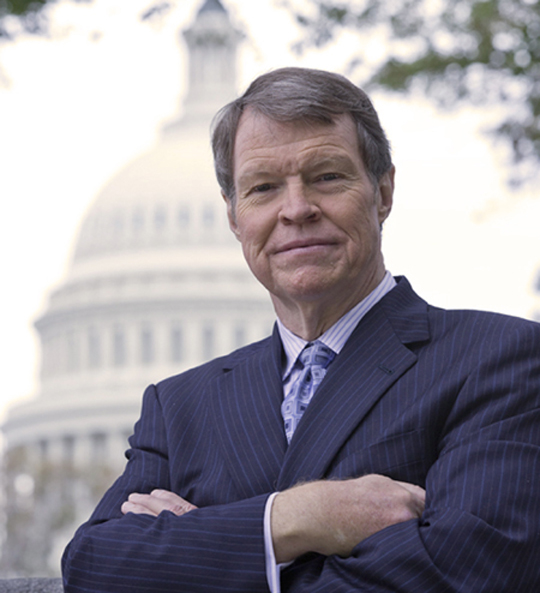
Merrill Matthews, Ph.D., is a resident scholar with the Institute for Policy Innovation, a research-based, public policy “think tank.” He is a health policy expert and opinion contributor at The Hill. He also serves on the Texas Advisory Committee of the U.S. Commission on Civil Rights.
Dr. Matthews is a past president of the Health Economics Roundtable for the National Association for Business Economics, the largest trade association of business economists. Dr. Matthews also served for 10 years as the medical ethicist for the University of Texas Southwestern Medical Center’s Institutional Review Board for Human Experimentation, co-author of On the Edge: America Faces the Entitlements Cliff, and has contributed chapters to several books, including Physician Assisted Suicide: Expanding the Debate and The 21st Century Health Care Leader and Stop Paying the Crooks (on Medicare fraud).
He has been published in numerous journals and newspapers, including The Wall Street Journal, Investor’s Business Daily, Barron’s, USA Today, Forbes magazine and the Washington Times. He was an award-winning political analyst for the USA Radio Network.
Dr. Matthews received his Ph.D. in Humanities from the University of Texas at Dallas.
Democrats Run The Cities With The Highest Violent Crime Rates
Do cities with high crime rates tend to vote for Democratic mayors, or do the policies and practices of Democratic mayors tend to lead to high crime rates?
More Tax Money for Obama's Green Dreams
President Obama is poised to waste another $100 million pursuing his, not consumers', vision of a corn cob in every gas tank.
The Alternate Plan: Texas Counties Pioneer Social Security Reform
In a new publication, The Private Sector Can Reform Social Security’s Disability Program, Dr. Merrill Matthews, Ph.D., a resident scholar with the Institute for Policy Innovation, outlines how Galveston County opted out of Social Security in 1981 with Matagorda and Brazoria counties following suit in 1982. The three counties instead adopted what’s known as the “Alternate Plan.”
Why Republicans Should Give Obama Trade Promotion Authority
Republicans don’t trust President Obama. Can’t fault them for that. But that distrust is driving many of them to oppose trade promotion authority (TPA) legislation, also known as “fast track.” That’s the wrong conclusion. If distrust is the issue, then Republicans should support TPA rather than oppose it.
Why Is Obama Blocking Infrastructure Projects?
Energy development has been crucial to America's economic growth in recent years. The feds have the power to ensure that economic success has only just begun, but only if officials stop standing in the way of a needed infrastructure expansion.
Obamacare's Problems Are Making Nurses and PAs The Big Winners In Health Care Reform
There are winners and losers in President Obama’s effort to remake the U.S. health care system, and two of the big winners are nurse practitioners (NPs) and physician assistants (PAs). Both will get to do more and make more in the new health care landscape.
End The Ban on Oil Exports
The country has just taken another step towards energy independence—which also means energy security. Sens. Lisa Murkowski (R-Alaska) and Heidi Heitkamp (D-N.D.) have introduced the Energy Supply Distribution Act, whose primary purpose is to end the 40-year ban on exporting U.S. crude oil.
A Huge "Apathy Gap" Between Hillary And The Republican Candidates
Only a relatively small number of people are actually excited that Hillary Clinton is running and will likely be the Democratic presidential nominee.
Let The Private Sector Reform Social Security's Disability Program
Social Security's disability program is in poor financial shape, but a new publication explains how a private sector reform, modeled after a program that's been around for nearly 35 years, would provide the disabled and survivors with better benefits while helping remove some of the strain from Social Security.
The Private Sector Can Reform Social Security's Disability Program
Social Security's disability program is in bad financial shape. A private sector reform, modeled after an program that's been around for nearly 35 years, would provide the disabled and survivors with better benefits while helping remove some of the strain from Social Security.





